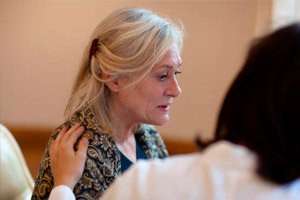
All iLive content is medically reviewed or fact checked to ensure as much factual accuracy as possible.
We have strict sourcing guidelines and only link to reputable media sites, academic research institutions and, whenever possible, medically peer reviewed studies. Note that the numbers in parentheses ([1], [2], etc.) are clickable links to these studies.
If you feel that any of our content is inaccurate, out-of-date, or otherwise questionable, please select it and press Ctrl + Enter.
Dementia remains undiagnosed for 3.5 years after first symptoms
Last reviewed: 03.08.2025

People with dementia are diagnosed on average 3.5 years after their first symptoms appear, while those with early-onset dementia are diagnosed even later (on average 4.1 years), according to a new study led by researchers at University College London (UCL).
The study, published in the International Journal of Geriatric Psychiatry, was the first systematic review and meta-analysis of global data examining time to diagnosis in dementia.
The researchers analyzed data from 13 previously published studies conducted in Europe, the United States, Australia and China, involving 30,257 participants.
The aim of the research team was to examine the average interval between the onset of symptoms (assessed by patients themselves or their relatives based on interviews or medical records) and the final diagnosis of dementia.
Lead author Dr Vasiliki Orgeta (UCL Department of Psychiatry) said:
"Timely diagnosis of dementia remains a major global challenge shaped by many complex factors, and specific public health strategies are urgently needed to improve it.
Other studies estimate that only 50-65% of cases are diagnosed in high-income countries, with rates even lower in some countries.
Early diagnosis can improve access to treatment and, for some people, extend the time they can live with mild dementia before symptoms worsen.”
In a pooled meta-analysis of 10 of the included studies, the researchers found that it took an average of 3.5 years from the first onset of symptoms to a dementia diagnosis, or 4.1 years for those with early-onset disease, with some groups more likely to experience even longer delays.
The team found that younger age at onset and the presence of frontotemporal dementia were associated with longer diagnosis times. While data on racial differences were limited, one study reviewed found that patients with darker skin tones tended to have longer diagnosis delays.
Dr Orgueta said:
“Our work highlights the need for a clear conceptual framework for assessing time to dementia diagnosis, developed in collaboration with people with dementia, their carers and supporters.”
Dr Phuong Leung (UCL Department of Psychiatry) added:
"Dementia symptoms are often misunderstood as normal ageing, and fear, stigma and low public awareness can prevent people from seeking help."
Professor Rafael Del Pino-Casado, from the University of Jaén, Spain, said:
“Within health systems, inconsistencies in patient referral pathways, limited access to specialists and lack of resources in memory clinics can create additional delays. For some people, language differences or the lack of culturally appropriate assessment tools further complicate timely diagnosis.”
Dr Orgueta added:
“To speed up the diagnosis of dementia, action is needed at several levels. Information campaigns can help improve understanding of early symptoms and reduce stigma, encouraging people to seek help earlier. Training for clinicians is essential to ensure early recognition of symptoms and referrals, as well as access to early intervention and individual support, so that people with dementia and their families receive the care they need.”
